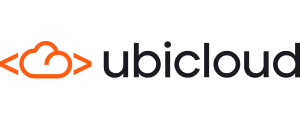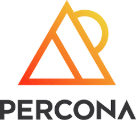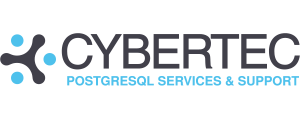Interview with Percona
Find out more about our sponsor Percona
Any views or opinions represented or expressed in this interview belong solely to the interviewee and do not necessarily represent those of the PostgreSQL Conference Europe 2025 organization, PostgreSQL Europe, or the wider PostgreSQL community, unless explicitly stated.
In which areas do you expect PostgreSQL to grow most and how does your company contribute to and benefit from that growth?
While there’s a lot we could list, here are the top three areas our customers highlight most:
- Replication and conflict resolution.
As PostgreSQL adoption grows in large organizations, enterprise ready logical replication becomes critical, including the ability to gracefully handle conflicts. This is an area we’re eager to contribute to, ensuring solutions land upstream and benefit the whole community. - Enterprise level compliance.
With more organizations standardizing on Postgres, robust compliance and auditing features are essential. These should be openly available, not limited to proprietary offerings. We contribute by building and maintaining features in the open so that everyone can use them and plan to double down on that in the upcoming year! - Extensibility.
Use cases like Transparent Data Encryption (TDE) show just how much innovation is possible through extensions. PostgreSQL’s flexibility here is a strength, and we’re contributing features that address enterprise needs while working to promote them upstream. The ongoing work around sharding may also benefit from this extensibility, though the community will need to define the long term path.
How does PostgreSQL help you bring value to your customers?
PostgreSQL brings value to our customers through its robustness and the promise of long term support backed by a strong, healthy open source community. The rich ecosystem of extensions makes the database highly adaptable to a wide range of use cases, while also ensuring it can meet future needs as they arise. While the challenge remains to extend these qualities across the broader ecosystem, the community is aware of this and is actively working to ensure comprehensive support.
Which feature is missing in PostgreSQL?
Three areas often come up:
- Horizontal scalability
Without strong community leadership, users can end up tied to solutions that aren’t maintained long-term, leaving them with difficult migrations or proprietary lock-in. - Comprehensive out of the box auditing and monitoring.
Application monitoring tools don’t always give the database level detail DBAs need for reliable root cause analysis and fault domain isolation within the database making this area harder than it should be. Beyond that, robust auditing is also key for compliance across many industries. With the risk of some products disappearing from the market, having strong, open source audit options is critical for PostgreSQL. - Built in conflict resolution for logical replication.
Native logical replication in PostgreSQL is moving forward from one major version to another, which is great to see. But users still face gaps when it comes to handling conflicts, often relying on older extensions with limited development. Having conflict resolution supported in core, or at least via a framework/API, would give enterprises more confidence and flexibility, especially for those with experience in proprietary enterprise replication products.
Will anyone from your team be presenting at PostgreSQL Conference Europe? What is the talk about and why does this topic matter?
Yes! We’re coming with a range of talks this year. Two of our team members are presenting on the main CFP tracks:
- Jan will share lessons learned in “What implementing pg_tde taught us about PostgreSQL”.
- Alastair will present “Kubernetes from the Database Out”.
Do you think that the recent mergers and acquisitions will influence Postgres? If so, how?
It depends. The PostgreSQL community thrives on individual contributions rather than purely company driven efforts. While many contributors work with company support, acquisitions and mergers rarely disrupt the individuals maintaining or expanding their long term contributions to PostgreSQL.That said, industry shifts such as mergers and acquisitions can lead to some Postgres tools being abandoned or new players pushing different functionalities.
When existing tools are sunsetted, this creates an opportunity for new products or even consulting services to fill the void. These solutions can often be better, as customers bring experience from previous tools and consultants or developers apply new learnings and capabilities.The true strength of PostgreSQL lies in its community. The core community remains healthy and vibrant, but the broader ecosystem is more fragmented. Some extensions and tools lack the same resilience.
This challenge has gained attention in recent years, and we are seeing efforts to address it.At Percona, we’ve always worked fully in the open: everything we build is open source, and designed to meet enterprise needs while contributing back upstream.
















